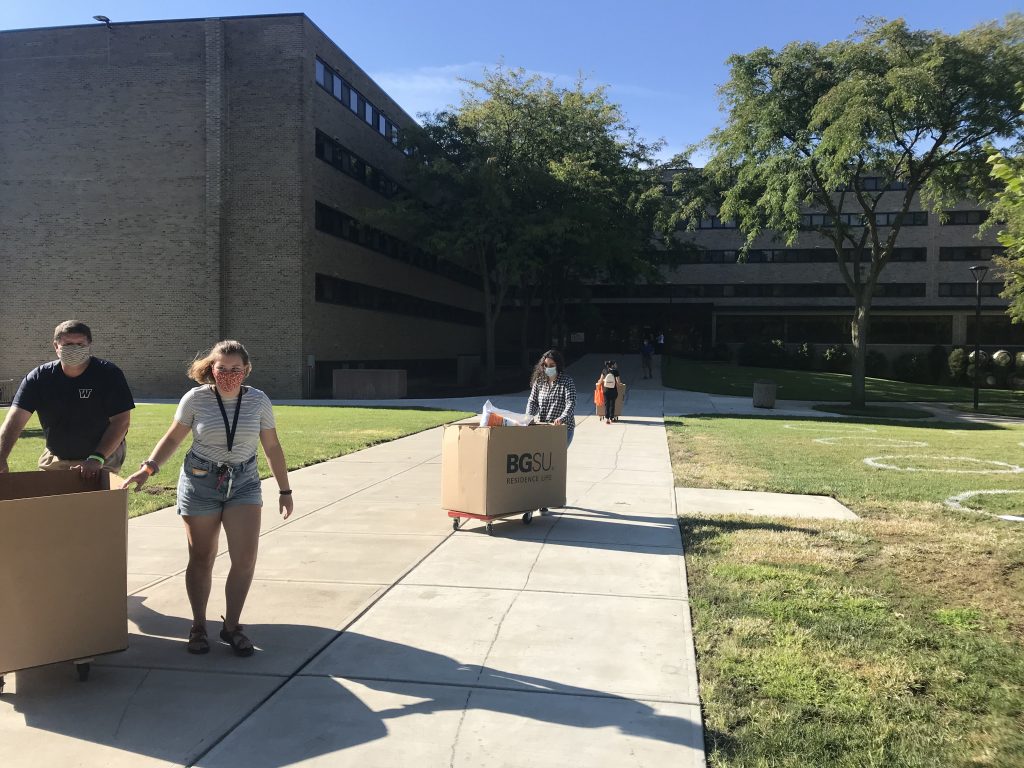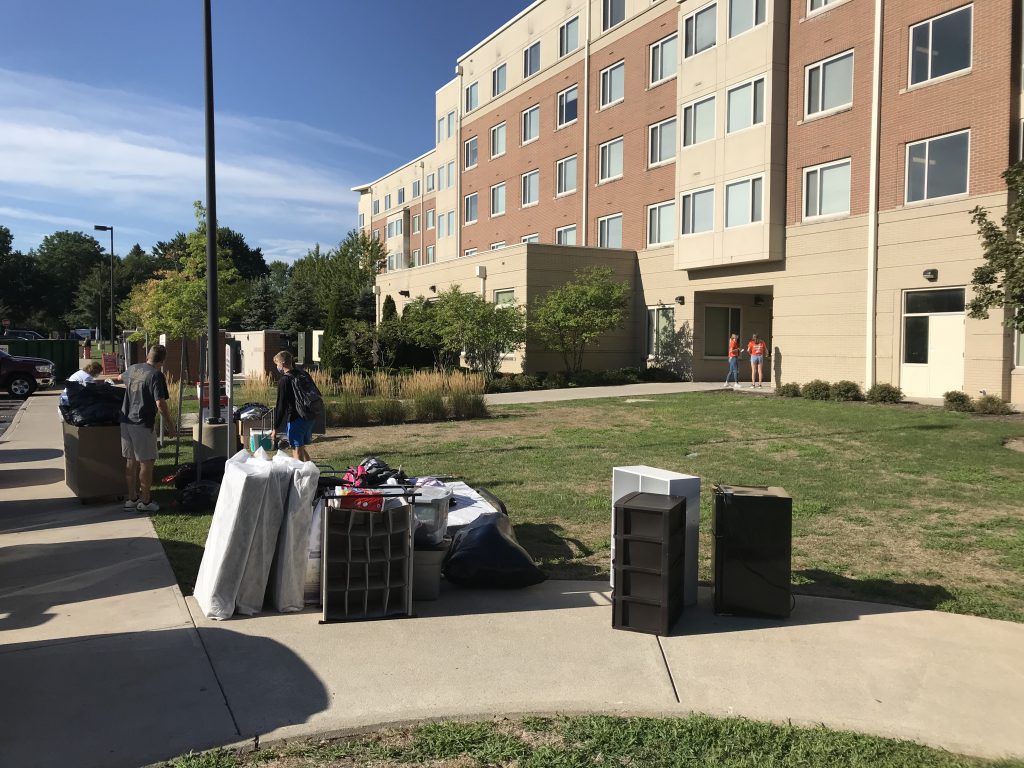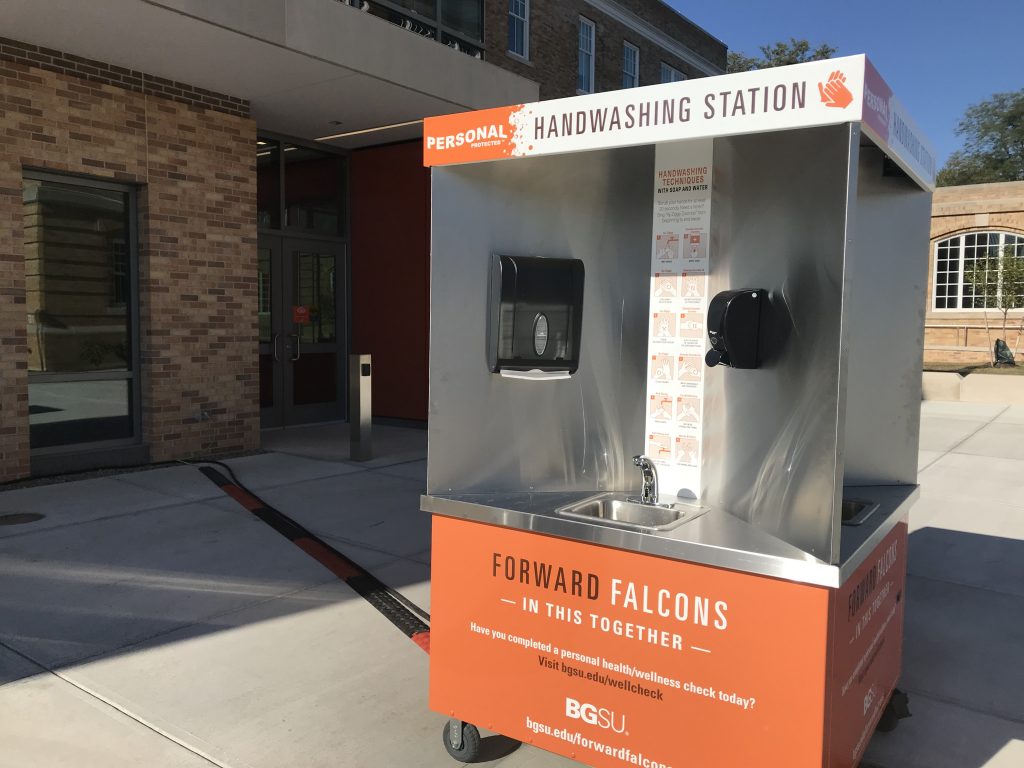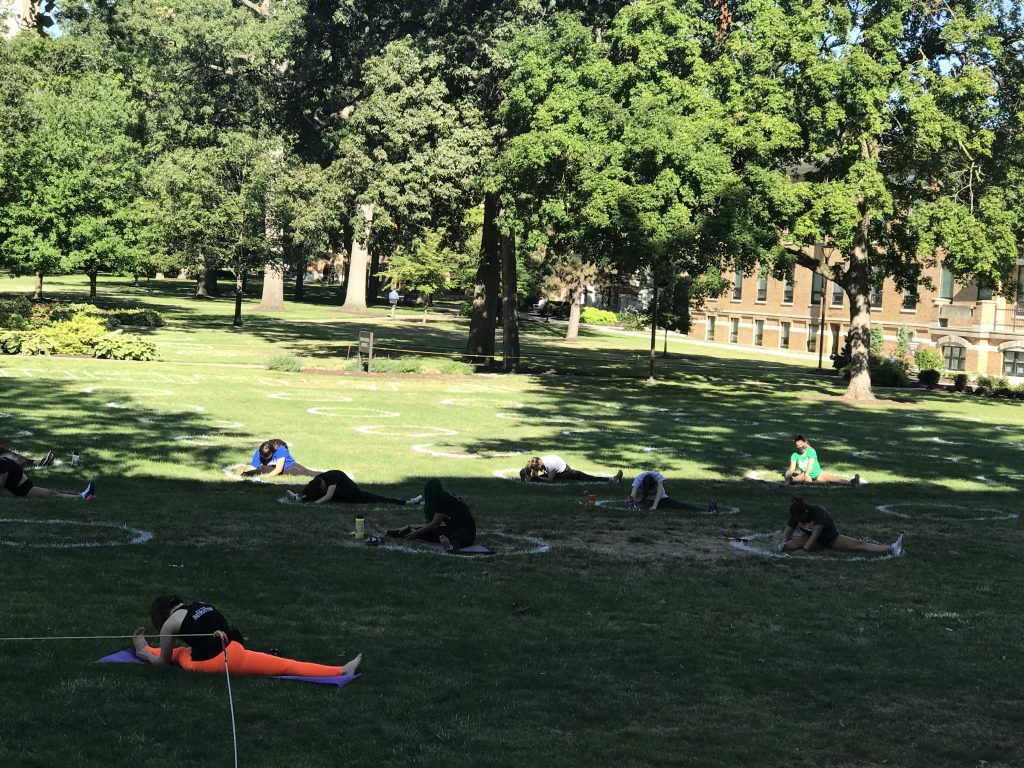By DAVID DUPONT
BG Independent News
Students started returning to the Bowling Green State University campus this week. A time usually marked by excitement, this year comes with question marks.
Move in at other colleges – the University of North Carolina, North Carolina State, and Notre Dame – has been followed in a matter of days by a switch to online learning because out outbreaks of coronavirus.
On Monday evening, top university administrators reported on BGSU’s efforts to keep that from happening here.

Ben Batey, the university’s newly appointed chief health officer, said that even if there was virus spread on campus, it wouldn’t necessarily result in sending students home.
Back in March when so little was known about the virus, and where it was, that made sense.
“In our new environment if we had campus wide spread, it may not be the best idea to send every student home to their families in other areas and expose other individuals in other areas.”
Instead students would shelter in place on campus for a few weeks, and continue their online classes.
Students would always have the option of returning home, Batey said.
But, he also cautioned, even during the semester students who want to return home should consider if they have any family members who are vulnerable. Before they leave campus when in-person instruction ends the day before Thanksgiving they should take added precautions to reduce the risk of spreading it to the family they will socialize with over the holiday. Students will not return to campus afterward, instead completing he semester online.

The importance of acting with the best interest of the community in mind ran through the 90-minute presentation.
In his conclusion, President Rodney Rogers was blunt. Everyone – students, faculty, and staff – need to heed the practices spelled out in the community commitment they all must sign. They must wear masks inside and outside when they can’t socially distance. They must monitor their health and if not feeling well contact their physician remotely and be careful not to be in contact with anyone else.
That’s what necessary, Rogers said, to get through the 13 weeks of the semester, which begins next Wednesday.
The university did do some initial testing on athletes and residence hall assistants who came to campus early, he said.
The incidence of the virus was under 2 percent of those tested, he said. That’s lower than the state average.
The university will not do regular, large scale testing, Batey said. Tests are a valuable resource, and to be testing thousands of people on campus would be to the detriment of those throughout Northwest Ohio who need to be tested because they exhibit symptoms.

Students, who have symptoms, will be tested, and will be required to quarantine while they await the results. Those who test positive will have to be isolated for a minimum of 10 days after they started showing symptoms and until those symptoms are gone.
Residential students will be housed in Falcon Pointe where each can have a single room, and food will be delivered to them. Students living off campus will have to make their own arrangements.
Other students who come in contact with someone who tests positive will be asked to quarantine. Resident students will quarantine in their rooms, and those living off-campus in their residences.
Arrangements will be made, Batey said, to allow them to keep up with their class work during this period.
They can go home, but again he cautioned, that they be careful about who they may expose.
As of Monday evening, some students’ schedules had yet to be finalized, Provost Joe Whitehead said. Students made their needs known through Design My BGSU, and the university was doing its best to meet their needs for remote, hybrid, or online classes.
As of Monday, he said, “we’re not where we want to be, but we’re getting close.”
Rogers said that 29 percent of students will have fully virtual schedules, either remote courses, which are offered at a specific time, or online courses, which can be accessed at any time. (Hybrid mixes remote and face-to-face instruction.)
Though he didn’t share a precise number, he said, the university’s attempt to have fewer students living on campus had worked. The university offered up to 2,000 students planning on living on campus a $1,500 credit to commute.
Jodi Webb, the associate vice president for student affairs, conceded that many of the large-scale events, students are familiar with will not happen.
Campus Fest, an outdoor showcase for campus clubs and activities, as well as community groups, will be held virtually.
Still smaller gatherings, of 10 and under can be held, if they follow the health protocols.

“It is incredibly important for people to cooperate,” she said. Those who violate the rules, on or off campus, will face repercussions under the student code of conduct.
“We’re working with city and local landlords to make sure our expectations about health and safety on campus extend to off-campus as well,” Webb said.
She urged parents to discuss this with students.
Residence halls will not only have reduced density, but no visitors will be allowed, and there will be new restrictions on other spaces.
That was evident during move in. Only one person was allowed to accompany the student into the residence hall.
Cleaning supplies will be available for students to use commonly touched surfaces, both before and after they come in contact with them.
That will be expected of faculty and staff as well.
This week the BGSU Faculty Association reasserted to its members that faculty have the right under the collective bargaining agreement to refuse to teach in person if they deem the room is not safe and the problems cannot be rectified in time for the class to be held.
The problems should be reported to the department chair or school director, and if it is not fixed, the faculty member can teach the class remotely until it’s safe to use.
In her conclusion Monday, Webb directly address students: “Many students are excited to be on the BG campus, and we’re excited for you to be here. This really is a collective effort. We’ll get through this. The actions you take or choose not to take will affect the larger community. Your responsibility is not just for your success but the success of others.”

